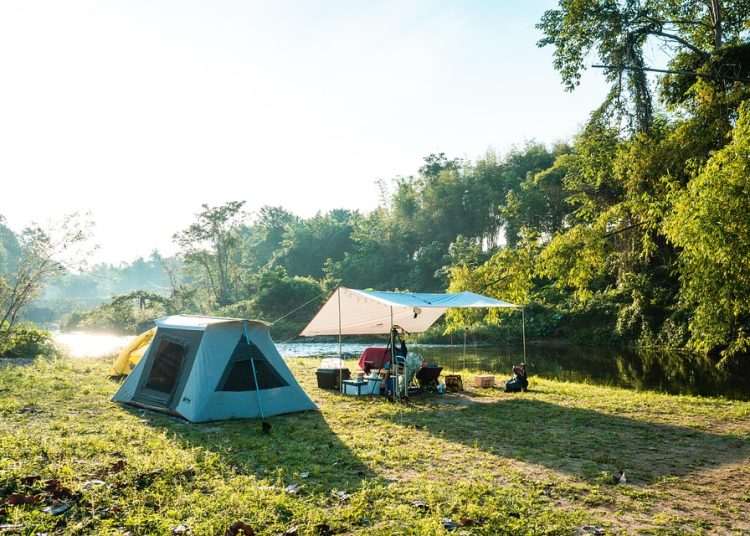Mastering the Great Outdoors: Essential Camping Skills for Every Adventurer
Camping is a popular outdoor activity that allows people to connect with nature, unwind from the hustle and bustle of daily life, and create lasting memories with friends and family. Whether you’re a beginner or a seasoned camper, mastering essential camping skills is crucial for a successful and enjoyable outdoor experience. In this article, we will discuss key skills every adventurer should master to make the most out of their camping trips.
Choosing the Right Campsite
One of the most important aspects of camping is selecting the right campsite. When choosing a campsite, consider factors such as proximity to water sources, level ground for setting up tents, access to hiking trails, and privacy from other campers. Additionally, check for any regulations or permits required for camping in the area. Researching and planning ahead will ensure a smooth camping experience.
Setting Up Camp
Setting up camp can be daunting for beginners, but with practice, it becomes second nature. Start by pitching your tent on level ground, using stakes to secure it in place. Make sure to place a ground tarp or footprint under your tent to protect it from moisture and sharp objects. Organize your camping gear in an orderly manner to easily access essentials such as food, water, and first aid supplies.
Building a Campfire
A campfire is not only essential for cooking meals but also provides warmth and a cozy ambiance during chilly nights. When building a campfire, follow Leave No Trace principles by using existing fire rings or designated fire pits. Gather dry firewood, kindling, and tinder to start your fire. Remember to fully extinguish the fire before leaving your campsite to prevent wildfires.
Cooking Over an Open Flame
Cooking over an open flame is a rewarding experience that allows you to enjoy delicious meals in the great outdoors. Invest in a portable camping stove or bring a portable grill to cook your favorite dishes. Use cast iron cookware for versatile cooking options and easy cleanup. Practice proper food safety techniques to prevent foodborne illnesses while camping.
Navigating the Wilderness
Navigation skills are crucial for staying safe and finding your way in the wilderness. Carry a map and compass, and learn how to use them effectively to navigate trails and unfamiliar terrain. Familiarize yourself with trail markers, landmarks, and natural signs to prevent getting lost. Consider taking a wilderness navigation course to enhance your skills.
First Aid and Emergency Preparedness
Accidents and emergencies can happen while camping, so it’s essential to be prepared. Pack a well-stocked first aid kit with essential supplies such as bandages, antiseptic wipes, pain relievers, and insect repellent. Learn basic first aid techniques such as treating cuts, burns, sprains, and insect bites. Familiarize yourself with emergency procedures and how to signal for help in case of an emergency.
Leave No Trace Principles
Leave No Trace is a set of outdoor ethics that promotes responsible outdoor recreation and conservation of natural resources. Adhering to Leave No Trace principles helps minimize your impact on the environment and preserve the wilderness for future generations. Follow guidelines such as packing out all trash, staying on designated trails, and respecting wildlife and other campers.
Gear Maintenance and Care
Proper gear maintenance is essential for ensuring the longevity and efficiency of your camping equipment. Clean and dry your gear after each trip to prevent mold, mildew, and odors. Inspect your gear for any signs of wear and tear, and repair or replace damaged items as needed. Store your camping gear in a dry and secure location to prolong its lifespan.
Connecting with Nature
Camping is a unique opportunity to connect with nature and appreciate the beauty of the great outdoors. Take time to observe wildlife, listen to the sounds of nature, and immerse yourself in the natural surroundings. Practice mindfulness and gratitude for the experience of being in nature, and leave behind a positive impact on the environment.
Conclusion
Mastering essential camping skills is key to a successful and enjoyable outdoor adventure. By choosing the right campsite, setting up camp efficiently, building a campfire, cooking over an open flame, navigating the wilderness, practicing first aid and emergency preparedness, following Leave No Trace principles, maintaining gear, and connecting with nature, every adventurer can have a memorable camping experience. So pack your bags, head into the great outdoors, and embark on a camping trip of a lifetime!
Remember, the key to mastering the great outdoors is preparation, practice, and a positive attitude. With these essential camping skills in your arsenal, you’re ready to tackle any outdoor adventure that comes your way. Happy camping!









